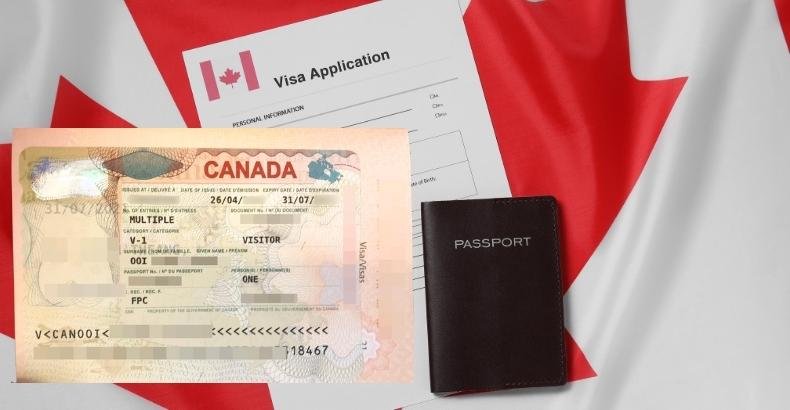Conferences in Canada are key events that attract professionals from various industries, providing opportunities to learn, network, and collaborate. Attendees come together to exchange ideas and stay updated on the latest trends in their fields. You might be wondering, “How Long Is a Conference Visa in Canada?”
The duration of a conference visa typically allows foreign nationals to stay in Canada for the length of the conference, plus any additional time for travel, usually up to six months. This visa is designed for short-term visits specifically related to attending professional events. It’s crucial to check the specific validity dates mentioned in your visa approval letter to ensure compliance with regulations.
Are you curious about the application process and requirements for this visa? This article will provide you with all the essential information you need to navigate the visa application process effectively and maximize your experience at the conference. Keep reading to learn more!
Importance of a Canadian Conference Visa
The importance of a conference visa in Canada cannot be overstated for professionals seeking to enhance their careers. This visa serves as a gateway for attending valuable conferences, workshops, and seminars that foster networking and knowledge sharing. By obtaining a conference visa, you gain access to industry leaders, innovative ideas, and cutting-edge research, all of which can significantly impact your professional development.

Participating in these events allows you to connect with like-minded individuals and expand your professional network. This can lead to collaboration opportunities, mentorship, and potential job offers. Additionally, a conference visa ensures that you comply with Canadian immigration laws, providing you with peace of mind during your travels.
Overall, a conference visa is essential for anyone looking to make the most of their experience in Canada, facilitating personal growth and contributing to professional success in today’s competitive landscape. By attending conferences, you position yourself at the forefront of your field, ready to implement new strategies and insights.
How Long Is a Conference Visa in Canada?
It’s essential to check the specific dates on your visa approval letter, as overstaying can lead to serious consequences for future travel. Properly planning your itinerary will ensure you make the most of your time in Canada while complying with visa regulations. When considering how long a conference visa is valid, it is essential to understand the factors including the visa processing duration after biometrics influencing its duration.

Duration of Stay
The length of your stay in Canada under a conference visa is generally determined by the duration of the conference itself. Most conferences last a few days, so your visa will typically allow you to remain in Canada for the length of the event plus some extra time for travel.
Visa Validity
The validity of a conference visa can range from a few days to six months. When applying, you must specify the dates of your intended stay, including any pre-conference and post-conference activities. This will help immigration officials assess your application more effectively.
Application for Extension
If you find that you need to stay longer than the dates specified in your visa, you may apply for an extension. To do this, you must apply for Immigration, Refugees, and Citizenship Canada (IRCC) before your current visa expires. Be prepared to provide a valid reason for your extended stay and any supporting documentation, such as a new conference invitation or other commitments in Canada.
Planning Your Trip
To ensure that you stay within the permitted duration of your conference visa, it’s important to plan your travel itinerary carefully. Consider the following tips.
- Book Accommodation in Advance: Make sure you have a place to stay during your time in Canada, whether it’s near the conference venue or elsewhere in the city.
- Create a Travel Itinerary: Document your travel plans, including your arrival and departure dates, any tours or meetings scheduled, and your attendance at the conference.
- Have Backup Plans: If your travel plans change unexpectedly, be prepared with alternative accommodations and itineraries to avoid overstaying your visa.
Checking Visa Conditions
Always check the conditions of your conference visa once it is issued. This will help you understand the specific dates and restrictions you need to comply with during your stay in Canada.
Understanding the Conference Visa for Canada
A conference visa is a type of temporary resident visa that allows foreign nationals to attend conferences, seminars, workshops, and other related events in Canada. This visa is specifically designed for individuals traveling for professional purposes rather than for tourism or permanent residency. Knowing the nature of this visa is crucial for ensuring a smooth application process and a successful trip.
Key Points about Conference Visas
- The main purpose of the conference visa is to facilitate the participation of foreign professionals in events that promote knowledge exchange, networking, and professional development.
- The length of stay permitted under a conference visa can vary based on the specific conference’s dates and your travel itinerary. Typically, the visa allows you to stay for the duration of the event plus any additional time required for travel.
- Depending on your travel plans, you may apply for a single-entry or multiple-entry visa. A single-entry visa allows you to enter Canada once, while a multiple-entry visa permits several entries within the visa’s validity period.
- The conference visa is usually valid for a period of up to six months, but this can differ based on the length of the conference and other factors. Always check the specific dates mentioned on your visa approval letter.
- To apply for a conference visa, you’ll need to provide several supporting documents, including an invitation letter from the conference organizers, proof of financial support, and travel itineraries.
Knowledge of these key aspects of the conference visa is vital as you prepare for your application. This will help you ensure that you have the necessary documents and that you understand the limitations and responsibilities associated with your visa.
What Are the Types of Conference Visas Available?
When it comes to attending conferences in Canada, there are several types of conference visas available, each catering to different needs and situations. Here’s a breakdown of the main types of visas you might consider.
Visitor Visa (Temporary Resident Visa)
This is the most common visa for individuals attending conferences in Canada. It allows foreign nationals to enter Canada temporarily for tourism, business meetings, or to attend conferences.
Typically valid for up to six months. Applicants must prove their ties to their home country and demonstrate that they will return after the conference.
Electronic Travel Authorization (eTA)
For citizens of visa-exempt countries, the eTA allows entry into Canada for short stays, including attending conferences. Valid for up to five years or until the passport expires. Must meet the requirements of the eTA and be traveling by air.
Business Visa
This visa is suitable for individuals attending business meetings, trade shows, or conferences that involve business activities.
Generally granted for the duration of the event. Applicants must show that their travel is related to business and provide necessary documentation.
Work Permit
If your participation in the conference involves working or presenting, you may need a work permit. Depends on the length of the work assignment. Typically requires a job offer from a Canadian employer or a contract for services.
Specialized Programs
Certain industries or professions may have specific visa programs or exemptions that facilitate participation in conferences. Varies based on the program.
When applying for a conference visa, it’s essential to determine which type best suits your needs. Ensure that you gather the necessary documentation for the specific visa you are applying for, including invitation letters, financial proof, and any other relevant information.
Eligibility Criteria for a Conference Visa in Canada
Before applying for a conference visa in Canada, you must meet certain eligibility criteria to ensure a successful application. Attendees must confirm and submit all the visa requirements for conferences in Canada when applying. Here are the main requirements.

- Purpose of Visit: You must clearly state that the purpose of your visit is to attend a conference or professional event. This can be supported by an invitation letter from the conference organizers.
- Valid Passport: Your passport must be valid for the duration of your stay in Canada. It’s recommended to have at least six months of validity beyond your planned departure date.
- Financial Sufficiency: You need to demonstrate that you have sufficient funds to cover your expenses during your stay. This may include, Bank statements
- Proof of employment
- Sponsorship letters if someone else is funding your trip
- Ties to Home Country: To convince immigration officials that you will return to your home country after the conference, you should provide evidence of your ties, such as,
- Family connections
- Employment or business commitments
- Property ownership
- No Criminal Record: Applicants should not have a criminal record or have been involved in activities that could lead to a refusal of entry into Canada. You may need to provide police clearance certificates to prove your standing.
- Medical Exam (if required) : In some cases, you may need to undergo a medical examination, especially if you plan to stay for an extended period or if you have health concerns.
- Compliance with Canadian Immigration Laws: You must agree to comply with all Canadian laws and regulations during your stay, including the conditions of your visa.
Frequently Asked Questions
Here are some frequently asked questions regarding the conference visa in Canada, along with concise answers to help clarify common concerns.
What is a conference visa?
A conference visa is a type of temporary resident visa that allows foreign nationals to attend conferences, seminars, or workshops in Canada. This visa is specifically for professional purposes, not for tourism or permanent residency. It enables participants to engage in knowledge exchange and networking opportunities.
How long is a conference visa valid?
The validity of a conference visa typically ranges from a few days to six months, depending on the duration of the event. Your visa will generally allow you to stay in Canada for the length of the conference plus any additional time needed for travel. It’s essential to check the specific dates on your visa approval letter.
What types of documents are required for a conference visa application?
Required documents typically include a valid passport, an invitation letter from the conference organizers, proof of financial support, and a detailed travel itinerary. Additional documents may be requested based on your situation. Ensuring you have all the necessary documentation can help streamline your application process.
Can I work while on a conference visa?
No, a conference visa does not permit you to engage in employment in Canada. It is strictly meant for attending professional events and engaging in related activities. If you plan to work or provide services during the conference, you may need to apply for a work permit instead.
What should I do if my conference visa is delayed?
If your visa application is delayed, regularly check its status through your IRCC account and consider contacting the visa office for updates. Be prepared to provide any additional documentation if requested. It’s advisable to have a backup plan, such as attending the conference virtually if necessary.
Final Words
Attending a conference in Canada can be a valuable experience for professionals looking to advance their careers, expand their networks, and gain new insights into their field. However, obtaining a conference visa is a crucial step in making this possible. By understanding the process, eligibility criteria, and duration of your visa, you can better prepare for your trip.
In this article, we explored the question, “How long is a conference visa in Canada?” and discussed the various types of visas available, the application steps, and tips for success. Remember to plan ahead, gather the necessary documentation, and follow all regulations to ensure a smooth experience.
As you prepare for your conference, take the opportunity to connect with fellow attendees, participate in workshops, and engage in discussions. These interactions can significantly enhance your learning and provide valuable contacts for future collaborations.